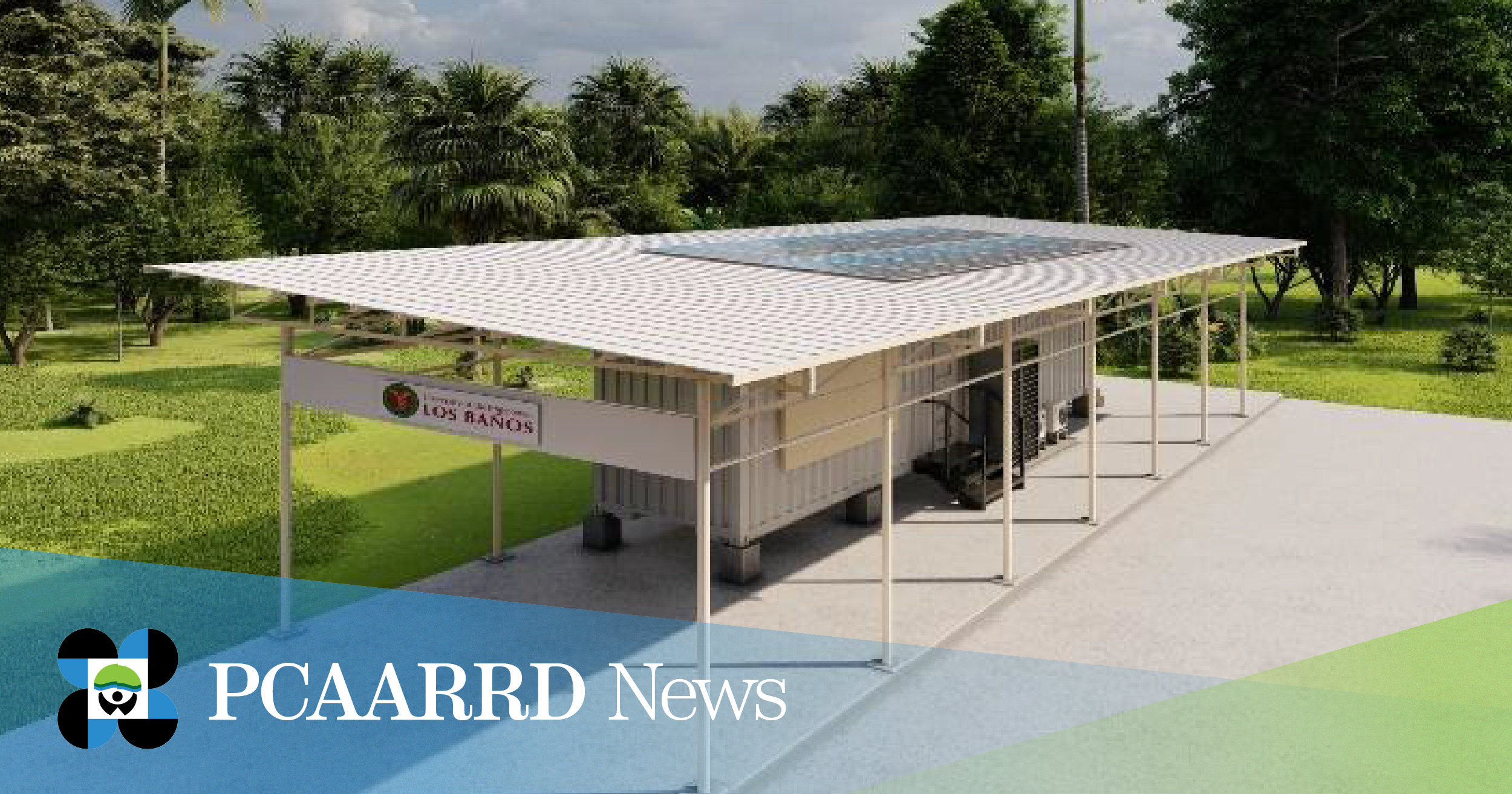The Sustainable Indoor Farm for Growing Leafy Vegetables using Artificial Lighting (SIGLA) Modular Farm will help maintain consistent crop production regardless of weather conditions.
SIGLA is a type of indoor farming where plants are grown under controlled conditions. This ongoing project of the University of the Philippines Los Baños (UPLB) is about to set the trend on how the country can sustainably grow food crops during rainy or dry seasons.
It is being implemented through the funding support of the Department of Science and Technology (DOST) under the PH-ROK (Republic of the Philippines and Republic of Korea) Joint Science and Technology Research Program. The Agricultural Resources Management Research Division of the DOST-Philippine Council for Agriculture, Aquatic, and Natural Resources Research and Development (DOST-PCAARRD) monitors and evaluates the project.
The project team led by Prof. Ronaldo B. Saludes reported that the SIGLA modular farm can ensure optimal growth conditions of leafy greens, regardless of external weather patterns. This is possible by simulating indoor environmental conditions through advanced computational fluid dynamics (CFD) analysis and integrating a grid-tied solar photovoltaic system.
Saludes explained that “CFD uses numerical methods to simulate how air and other fluids move in different spaces. This technique enables the creation of a simulation model allowing the researchers to analyze airflow circulation and temperature distribution inside the crop production system. CFD can optimize the indoor environment of a SIGLA Modular Farm by identifying areas where airflow needs improvement and determining locations for circulating fans and air conditioning units to eliminate potential hot spots inside the farm.”
Further, Saludes clarified that “a grid-tied solar photovoltaic system is a type of solar energy installation that is connected to the primary electrical grid. It supplies electricity to a system using solar energy and the grid, without a solar battery. The SIGLA Modular Farm uses a hybrid inverter that can automatically switch between solar and grid energy without disrupting its operations. Additionally, by using solar photovoltaic energy, the farm can significantly reduce its dependence on grid electricity, thereby lowering operational expenses. The integration of renewable energy into the SIGLA Modular Farm helps reduce its carbon footprint and further contributes to a more sustainable food system.”
The construction of the SIGLA modular farm is expected to be completed before the end of 2024. Aside from applying the CFD technique and the installation of the grid-tied solar-energy system, leafy vegetables will be grown in a 4-layer Nutrient Film Technique (NFT) hydroponics racks with specialized artificial grow lights and other equipment to regulate and control indoor environment conditions. Ongoing as well is the development of an automated nutrient management system.
The project research team will assess the sustainability and resource-use efficiency of establishing a SIGLA Modular Farm through benchmark surveys and optimization of the production and operation management. The team will also review its cost-effectivity and impact to the environment through carbon footprint analysis and cost-benefit analysis.
The SIGLA Modular Farm is expected to benefit urban farming enthusiasts, food service industry and private companies, local government units, and research institutions.

